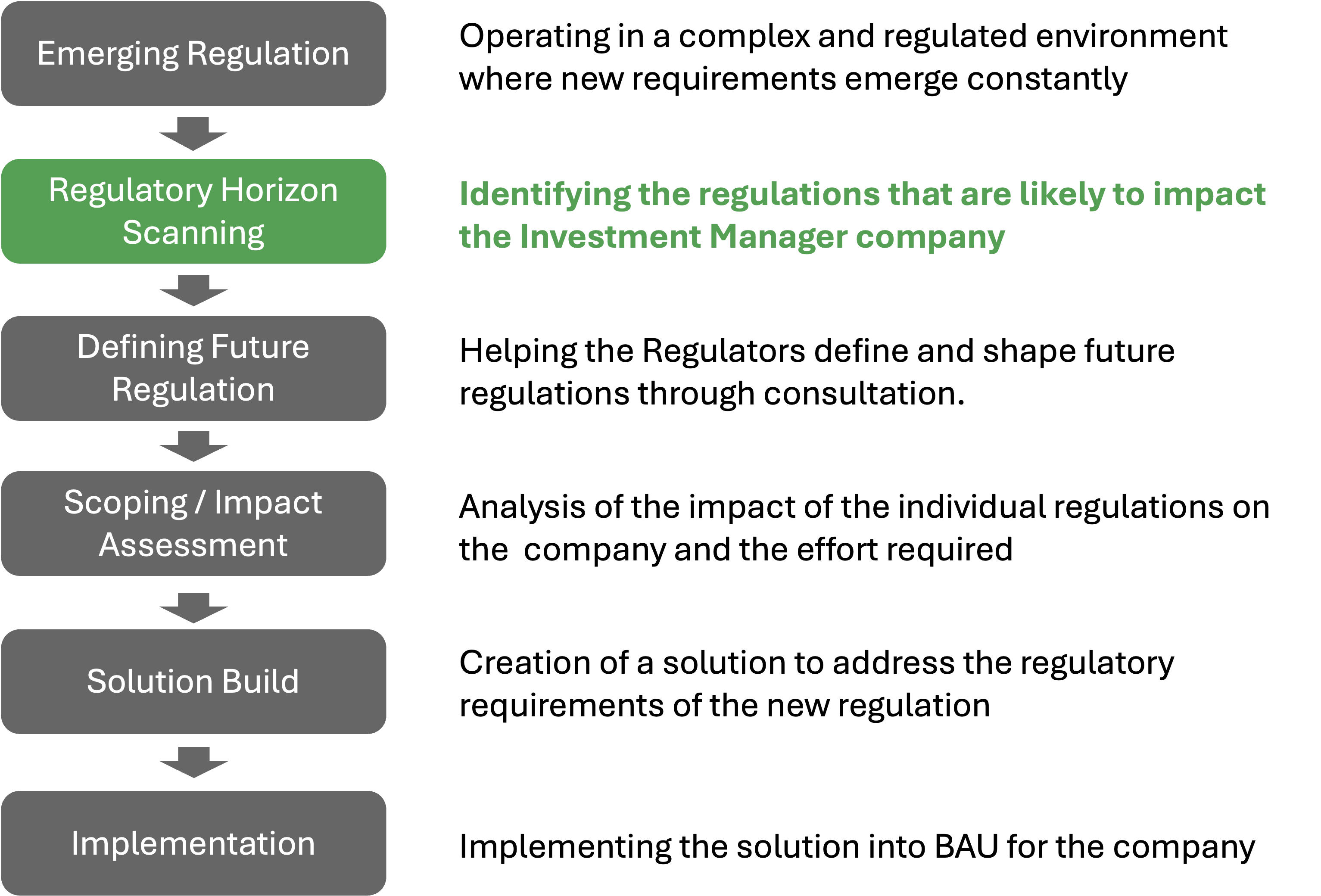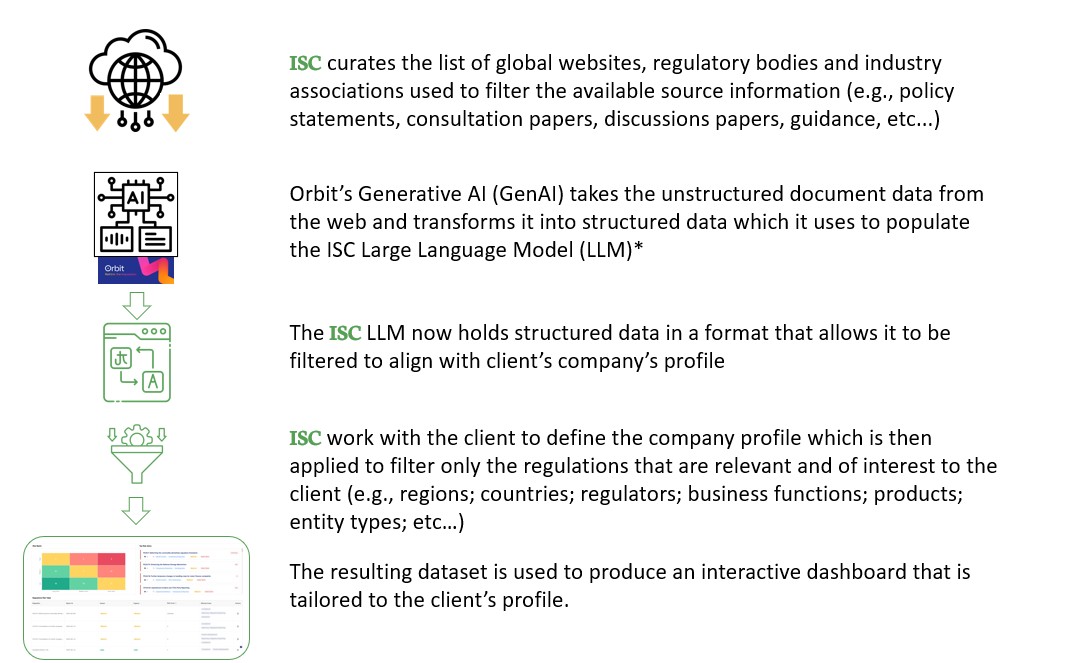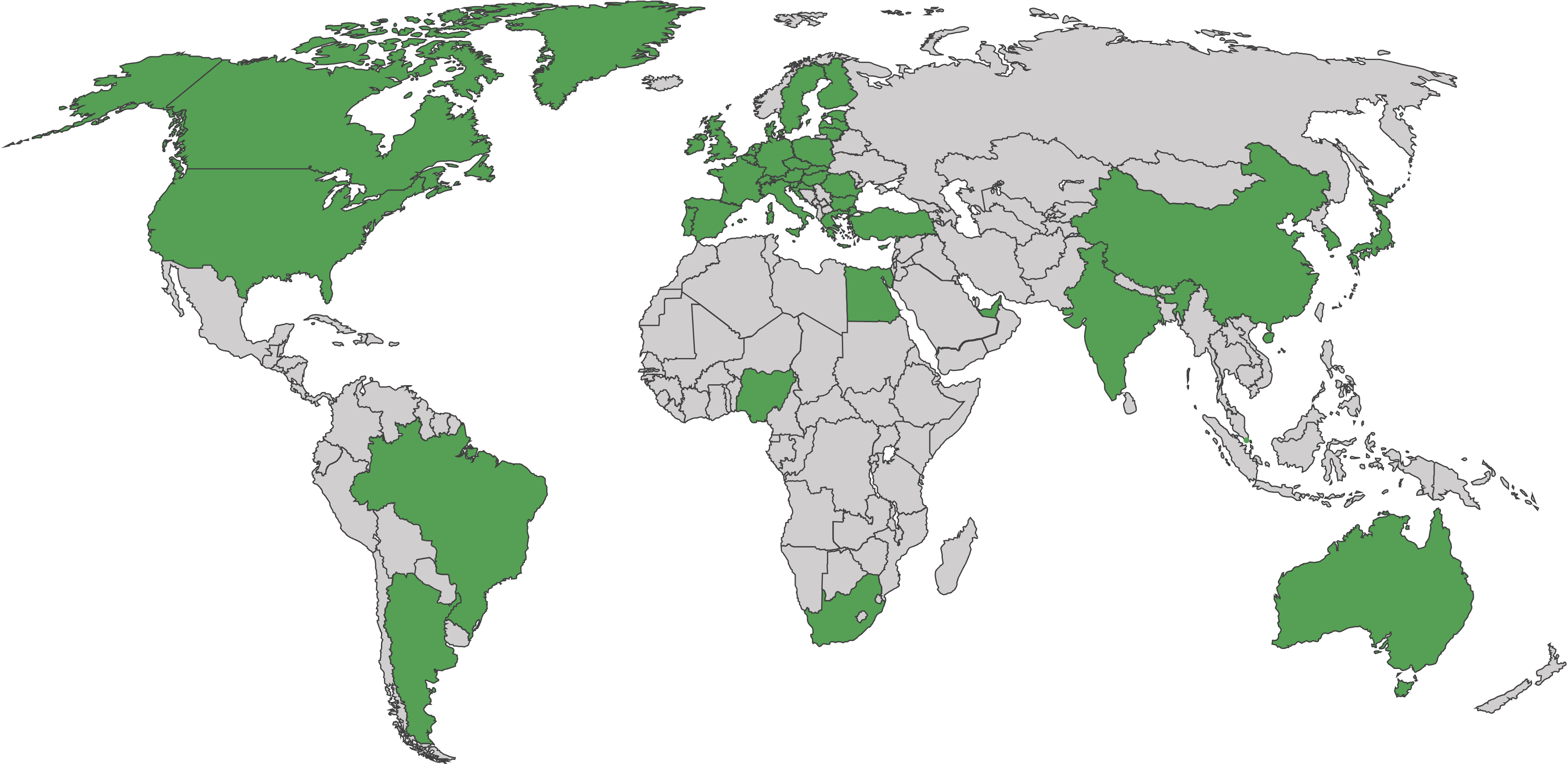RegAware - Regulatory Horizon Scanning
Powered by Orbit's GenAI
Regulatory change is a constant in the Investment Management Industry. Horizon Scanning is looking at the changes that are coming down the pipeline, from discussion or consultation papers through to policy statements or regulatory rules, and analysing those future changes to see which will impact a company and will need to be planned for.
The Regulatory Horizon Scanning Challenge
ISC understands how challenging Regulatory Horizon Scanning can be within Asset Management. Not only identifying upcoming regulatory change, but also presenting it in a way that can be easily consumed by all stakeholders and staff in a firm.
- Number of Regulators – Investment Managers need to be aware of numerous regulator announcements, each with their own approaches, methodologies and timings.
- Volume of Regulations – Investment Managers have to review the significant volume of regulatory publications, which can often involve hundreds of pages of rules and accompanying text.
- Complexity of Regulatory Text – Regulatory text is often complex to assess as often covers a variety of financial sectors, companies and services, often requiring interpretation with nuanced wording.
- Entity Specific Application – Tailoring Horizon Scanning requires systematic consideration in order to effectively scope regulations to a firm’s entities and services, ensuring applicable regulations are proportionately addressed.
- Regulatory Divergence and Alignment – Regulators are constantly diverging in some areas whilst attempting to align in others, making it difficult to stay abreast of the changing regulatory landscape and approach efficiently.
- Regulatory Risk Exposure – Changing regulatory requirements exposes firms to greater regulatory risk, which requires robust early identification .
- Internal Horizon Scanning Solutions – Performing Horizon Scanning manually can be resource intensive and risks being incomplete, whereas automating internally will have significant upfront and ongoing costs.
Horizon Scanning is the first step in the regulatory change process for many companies, forewarning companies of regulations that will impact their business and helping them to define the changes they will need to make and plan for the effort required. The service will highlight discussion documents and calls for opinion.

Resolving The Challenge
ISC knows how challenging Regulatory Horizon Scanning can be within Asset Management. Not only identifying upcoming regulatory change, but presenting it in a way that can be easily consumed by all stakeholders and staff in a firm. ISC’s Horizon Scanning Solution is tailored to each individual client, and uses a powerful GenAI engine from Orbit Financial Technology to underpin the data, and the process, against the needs of any Asset Management Firm
ISC works with the client to understand their operations and regulatory jurisdictions, to build a profile against which pertinent regulations are reported. New regulation is highlighted, in addition to anything already in-flight which impacts the firm.

The regions covered by the ISC solution are shown in the map below.
ISC can add to these at client’s request.

One thing is certain, whether it’s in markets, infrastructure, ESG, or any other flavour, regulatory complexity is only increasing, and ISC’s Horizon Scanning solution can help Asset Managers in planning ahead for it.
Contact us to find out more
ISC is all about helping our clients be successful. Clients receive a personal relationship with our talented and pragmatic consultants, whose goal is to help them achieve success.
